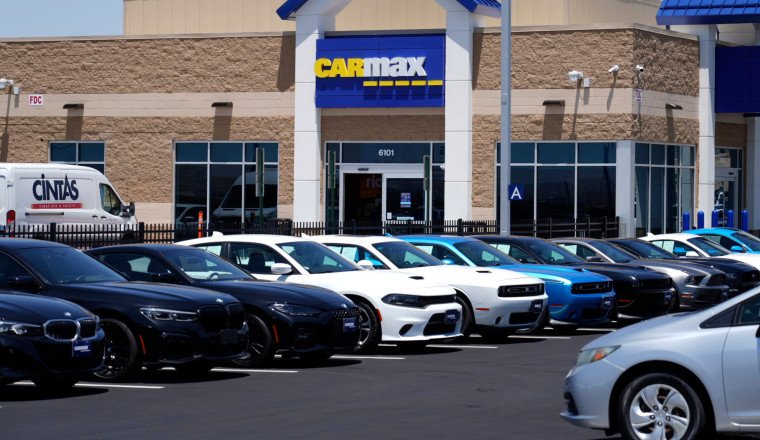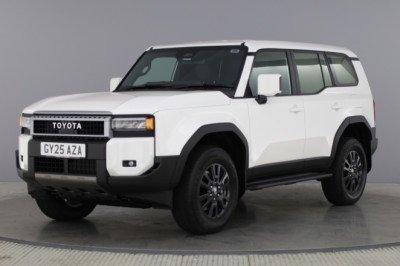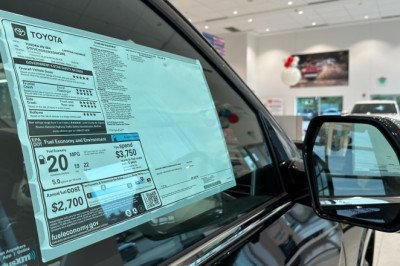
- CarMax reported its 2025 first quarter earnings, causing a rise in share price.
- The company is making used car buying easier for American consumers.
- Despite market anxiety regarding tariffs and potential price increases, CarMax continues to perform well and serve consumers looking for deals.
CarMax (NYSE:KMX) popped 8.83% from a June 19 market close of $64.32 a share after the company's first quarter earnings call. It opened at $70 a share on June 20, its highest share price since April 10. It's trading at $69.21 a share at the time of writing.
So, why is CarMax gaining steam and what's so special about the company? The used vehicle retailer is disrupting the automotive sales industry in a way that could massively benefit car buyers. Is CarMax the future of used car shopping for Americans?
CarMax reported that "gross profit increased by 12.8% to $896.3 million." The company purchased 336,000 vehicles from consumers and dealers. Q1 was the fourth consecutive quarter of double-digit year-over-year earnings per share growth, according to CEO William D. Nash.
The announcement of a generally positive earnings call led to a significant daily gain, with the share price reaching $67.96 at noon, June 20. This news is surprising considering the recent turmoil the automotive industry has anticipated regarding tariff-related price increases. CarMax's business model is unique from that of traditional auto dealers in the sense that it champions price transparency and ease of use.
When consumers purchase a new vehicle at an auto dealer, they can be confronted by salesmen looking to upsell unnecessary warranties, accessories, and additional packages that increase the total cost of a vehicle. Companies like CarMax and Carvana remove the pressure of interacting with sales professionals and provide a huge online inventory of used vehicles that have depreciated. Thus, CarMax and Carvana offer plenty of affordable used models with varying mileage.
The future of car buying will likely include more online augmentation so the process is more convenient, transparent, and informative to buyers in terms of available options. Rather than being brand-centric, used retailers like CarMax leave the selection process up to potential buyers, providing filters to refine their search based on pricing, mileage, recommendations, and more.
Choosing a used car isn't easy. Nearly 40% of car buyers regretted something about their purchase in 2022, according to LendingTree. Buyers remorse is an issue many drivers encounter, so having the right selection process is crucial to ensure a positive ownership experience.
Before choosing a used car you should:
When it comes to buying a used car, research is key. For example, if you're searching for a used vehicle under $25,000 with low mileage, there are several vehicles that suit your needs. If you refine your search to the SUV vehicle class and small SUV vehicle segment, the Toyota RAV4, Honda CR-V, and Nissan Rogue are some of the most popular models.
You can search for specific models, model years, and more on CarMax's website to see available options. There are over 1,000 Toyota RAV4 small SUVs with under 50,000 miles listed on CarMax for prices under $25,000.
Users can also search for specific vehicle segments and refine their search via the website without a specific model in mind. The future of used car buying looks bright as consumers have more resources and info than ever before.















Facebook Conversations